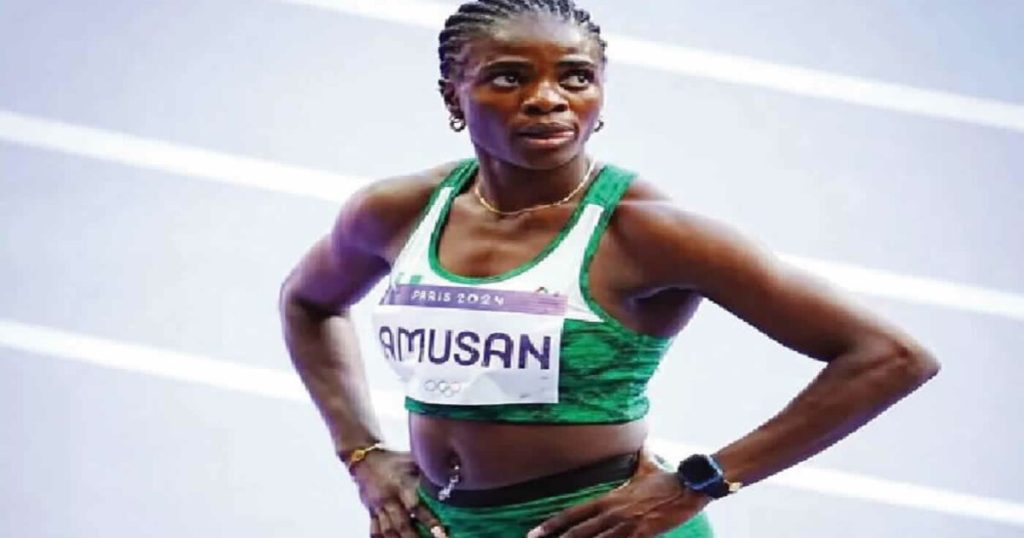Tobi Amusan, the reigning world record holder in the women’s 100m hurdles, has publicly expressed her profound disappointment and frustration with the Nigerian Athletics Federation (AFN) regarding the inadequate and substandard kits provided to the Nigerian contingent for the 2023 World Athletics Championships held in Budapest, Hungary (not Tokyo). Her pointed critique, delivered via a video shared on her Snapchat account, highlighted a stark contrast between the professional preparation of other nations and the perceived neglect and disregard shown by Nigerian authorities towards their athletes. Amusan’s video, recorded just hours before the commencement of the championships, underscored the depth of her concern and the embarrassment she felt representing a nation that seemingly failed to provide even the most basic necessities for its competing athletes.
The crux of Amusan’s complaint revolved around the manner in which the kits were presented and the quality of the items themselves. While athletes from other countries received their gear in professional, organized suitcases, Nigerian athletes were handed their kits in flimsy nylon bags. This seemingly minor detail spoke volumes about the lack of respect and professionalism displayed by the AFN. The contents of these bags were equally underwhelming. Amusan revealed that each athlete received only two sets of competition gear, a paltry amount for a major international competition. Furthermore, the quality of the provided gear was subpar, with Amusan noting that the color would peel off onto the skin with perspiration. Essential items like long-sleeved shirts and singlets were missing altogether, leaving athletes scrambling to find suitable attire for the competition.
The inadequacy extended beyond the competition gear. Despite officials diligently collecting shoe sizes from the athletes, no shoes were included in the kit bags. This omission forced athletes like Amusan to resort to using their personal training gear, a clear indication of the AFN’s failure to adequately prepare their athletes for the world stage. This lack of foresight and planning not only impacted the athletes’ performance but also projected an image of disorganization and unprofessionalism on the international stage. Amusan’s frustration was palpable as she questioned the AFN’s commitment to its athletes and their success.
Amusan’s public outcry resonated deeply with many Nigerians who shared her sentiments regarding the AFN’s consistent failings. Her comments sparked a broader conversation about the challenges faced by Nigerian athletes, many of whom have contemplated switching nationalities to compete for countries that provide better support and resources. Amusan’s Snapchat caption, “abeg which country dey find athletes?” (which translates to “Please, which country is looking for athletes?” in Nigerian pidgin English), hinted at her own potential consideration of switching allegiance, echoing the recent decision of Favour Ofili, another promising Nigerian athlete who opted to represent Turkey.
This incident underscores the systemic issues plaguing Nigerian sports administration. The lack of proper funding, inadequate planning, and apparent disregard for the athletes’ needs have created an environment where talent is stifled and potential is squandered. Amusan’s brave stance highlights the need for urgent reforms within the AFN to ensure that athletes are provided with the necessary support and resources to compete at the highest level. Failing to address these issues risks losing more promising athletes to other nations, further diminishing Nigeria’s presence on the global sporting stage.
The implications of this incident extend beyond the immediate embarrassment and inconvenience faced by the athletes at the World Championships. It underscores the broader issue of talent drain in Nigerian sports. When athletes feel undervalued and unsupported by their own nation, they are more likely to seek opportunities elsewhere. This can lead to a significant loss of talent and potential for Nigeria, as other countries benefit from the skills and dedication of athletes who were originally nurtured and developed within the Nigerian system. The incident serves as a wake-up call for Nigerian sports authorities to prioritize the needs of their athletes and create an environment that fosters their growth and success. Ignoring these concerns will only perpetuate the cycle of neglect and further diminish Nigeria’s sporting prowess on the global stage.


